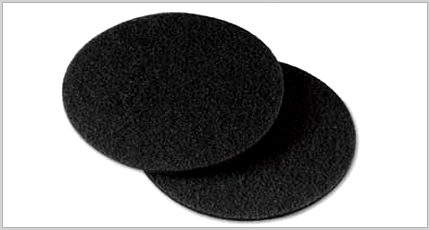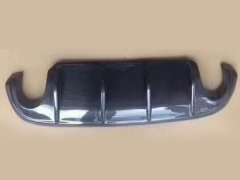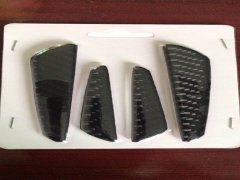Application of activated carbon fiber in water treatment

ACF is widely used for industrial wastewater treatment, gas and odor removal, inorganic, organic and precious metal plasma, microorganism and bacteria in aqueous solution, adsorption and recovery of low concentration adsorption. It has the advantages of large adsorption capacity, fast adsorption speed, fast desorption speed, less ash, large treatment capacity and long use time. ACF for water purification can be impregnated to fill the pores of ACF with special liquid synthetic antibacterial agent. After drying, the antibacterial agent can be firmly fixed in ACF, especially suitable for household water purifier. There are many kinds of small household water purifiers. The ultra small water purifier developed by Japan can be used for the travel, camping, mountaineering and disaster relief personnel, with the treatment of filtering, deodorizing, sterilization and turning hard water into soft water. The treatment of water quality has a special function. In wastewater treatment, ACF adsorption is often used for secondary treatment or tertiary treatment. When ACF is used in environmental protection engineering, its operation is safe. Because of its small bulk density and thin absorption and desorption layer, it will not cause heat storage and overheating, and it is not easy to have accidents. It is energy-saving and economical. It can be used in the treatment of large-scale water purification pool, which has not only high purification efficiency, but also large treatment capacity, small compact plant area, small equipment investment and high efficiency. ACF can also be used in water treatment plant and water purification unit of sugar plant, which can achieve the purpose of decolorization, deodorization and organic matter removal.
1. Treatment of organic wastewater
With the development of industrial production and the increase of urban population, the amount of domestic wastewater treatment in urban areas has been increasing. The organic pollutants in the wastewater, especially in the industrial wastewater, have a large increase trend, and the wastewater in the chemical industry, metallurgy, coking, light industry and other industries is the most important pollution source, which contains toxic substances and harmful substances that have posed a threat to the ecological environment.
ACF is suitable for the treatment of various organic wastewater, including wastewater containing chlorine, pharmaceutical factory, phenol, organic dye, tetrabenzene, caprolactam, dimethylacetamide and isobutanol. The adsorption capacity of ACF is much higher than that of PAC, especially for high equilibrium concentration, the adsorption capacity per gram of ACF is about 3 times of PAC. When the temperature is increased, the adsorption capacity is increased.
SISAL BASED ACF can effectively remove all kinds of organic dyes in water, such as methylene blue, crystal violet, chrome blue black R, etc. the removal rate is up to 100%. The pitch based ACF containing yttrium can effectively adsorb acid dyes, such as acid blue 9, acid blue 74, acid orange 10, acid orange 51, etc., and can also be used for direct dyes, such as direct Blue 19, direct yellow 11, direct yellow 50, basic Brown 1, basic cyano 3, etc.
The results show that the efficiency of ACF is 100%. The volatile phenol, COD and oil are 100%, 88.3% and 98.4% respectively, which can purify sulfur dioxide, carbon dioxide, alkalinity, hardness and phosphate. The COD of shale oil retorting wastewater with high concentration and complex composition can be less than 2000mg / L after treatment, and the COD of effluent for treatment is less than 1000mg / L.
2. inorganic wastewater
ACF has a good adsorption performance for metal ions. It can adsorb silver, platinum, mercury, iron and other ions in water and reduce them. In most cases, the redox reaction can greatly promote the adsorption of these metal ions.
3. Purified drinking water
As the increase of urban population has made the supply of drinking water insufficient, activated carbon has been used to treat trihalomethane wastewater in China, and its effective removal rate is only 40%. The detection of groundwater shows that there are many kinds of chlorides in the water. These chlorides have carcinogenic effect in the water. The chlorides in tap water can be removed by ACF. When the concentration of ACF is 1-5kg / m3, the adsorption capacity of ACF is 4 times of that of granular activated carbon, which can be one order of magnitude larger than that of activated carbon.
At present, activated carbon fiber has been widely used in water purifier, especially the silver loaded ACF has dual functions of adsorption and sterilization. When the silver content and specific surface area increased, the adsorption capacity of Escherichia coli increased, which was also effective for other microorganisms in water.





 扫一扫添加微信
扫一扫添加微信